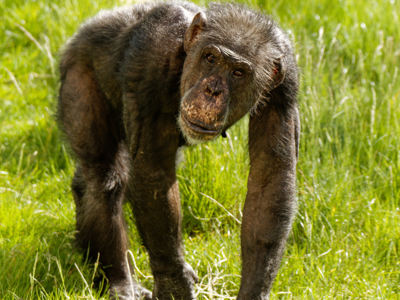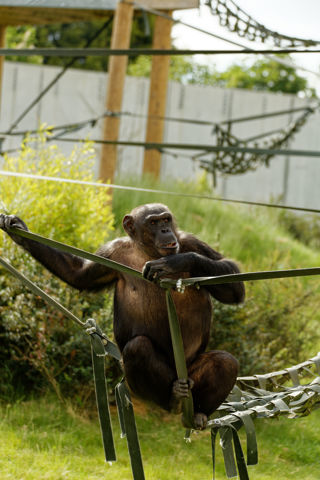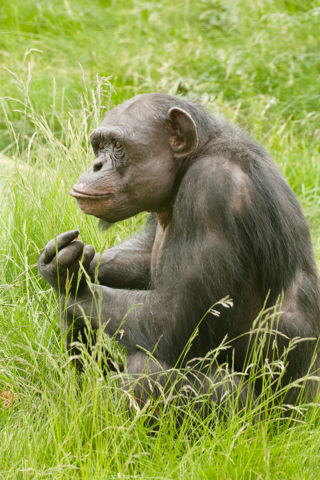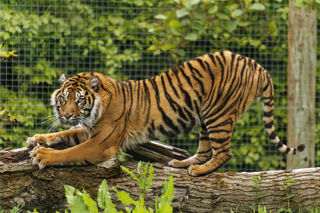
Chimpanzee
Chimps live in groups controlled by one dominant male. There is a strict hierarchy and male-male bonds are a very important part of this, because males stay in their birth group. Females move to another group when they mature. Chimpanzees are very social and have a complicated range of communication types, including: hoots, pants, screams, body language, grooming and facial expressions!

The dominant male will mate every fertile female in the group, but there will also be sneaky matings between other ind ividuals when he is not around. Babies completely rely on their mother for two years, until they start interacting with the rest of the group. Juveniles are independent at the age of four and sexually mature at six to eight years old.

They forage in family groups for most of the day collecting a huge variety of leaves, fruit, flowers and pith. The males will also form organised hunting parties to hunt for meat. Chimpanzees will eat any animal smaller than themselves from insects to frogs, birds and small monkeys and can use simple tools to access hard to get food.
Chimpanzees are under threat from hunting for bush meat, the pet trade and are able to catch human diseases. They are also losing their homes. Human use of their rainforest habitat includes farming, logging and mining.
Key Facts:
Conservation Status: Endangered
Distribution: Central Africa, Western Africa
Habitat: Tropical Forest
Diet: Animals, Fruit, Invertebrates, Leaves
Height: 1m – 1.7m
Weight: 35kg – 70kg
Gestation: 8 months
No. of young: 1 – 2
Life Span: 40 – 50 years

SUPPORT OUR ANIMALS
If you're looking for an alternative way to donate to Twycross Zoo, you can help support our animals and our zoo keepers by purchasing something from our Amazon Wishlist!
Updated regularly by our zoo keepers, the items on the list help to provide enrichment for our animals and keep their habitats well maintained.
Every donation helps us as a conservation charity.
